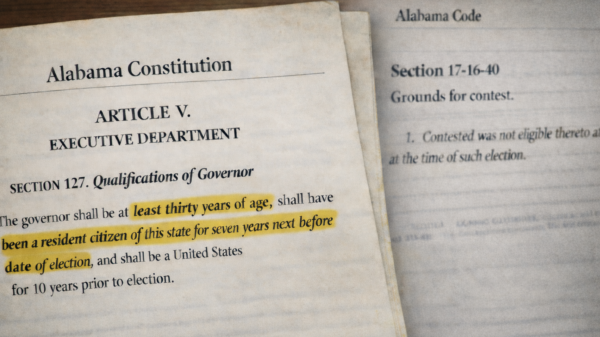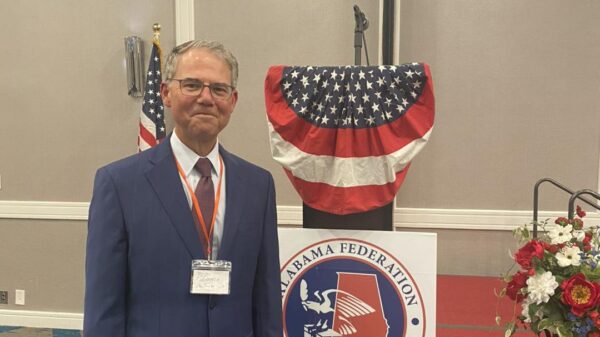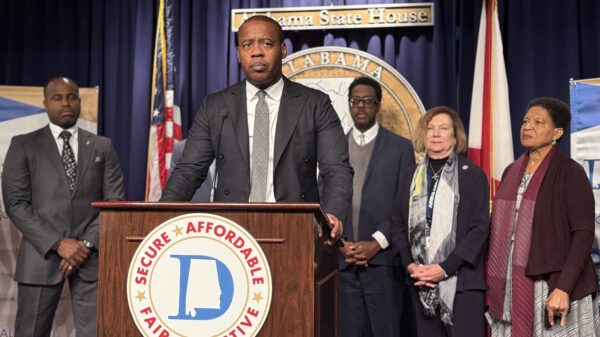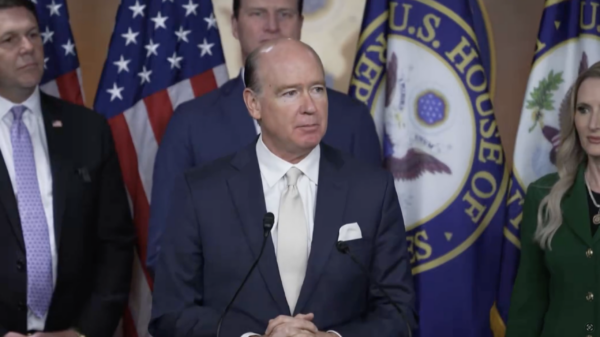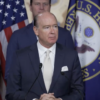By Brandon Moseley
Alabama Political Reporter
Tuesday, March 5, Alabama Governor Robert Bentley (R) surprised no one when he vetoed the 2017 fiscal year State General Fund (SGF) budget. The Governor demanded that the legislature give him more money for the troubled Alabama Medicaid system.
Both Houses of the legislature rapidly voted to override the Governor’s veto, setting up a show down over Medicaid funding, likely in a special session this summer.
Senate President Pro Tem Del Marsh (R-Anniston) told the ‘Montgomery Advertiser’s Brian Lyman, “This body overwhelmingly passed the General Fund budget. I do not see this body raising taxes or raiding education.”
Medicaid did not get cut. Governor Bentley requested $100 million more for Medicaid than it received in the 2016 fiscal year. The legislature balked at that request. Part of the increase was to offer the same Medicaid benefits that it offered last year and part of the money was for the deal that the Bentley Administration negotiated with the Obama Administration when it requests a waiver from the federal government in order to set up the regional care organizations (RCOs) that are supposed to eventually replace traditional Medicaid. Without the extra money, $millions in federal dollars might not reach Alabama Medicaid that were promised under the agreement.
State Senator Jim McClendon (R-Springville) said, “The Federal Government has offered to inject 100’s of millions of dollars into the conversion to RCOs, but, in order to qualify we must pony up the match. That will continue to happen year after year for the next 5 years, yet, we have made NO preparation the immediate upcoming year.”
Providence Hospital in Mobile, Alabama said in a statement: “Medicaid is a vital piece of Alabama’s strong health care system. Without it, hospitals would close and physicians would leave the state. This would restrict access to care for everyone, not just those enrolled in Medicaid.”
Arise Citizens’ Policy Project executive director Kimble Forrister issued a statement on Tuesday after the Alabama Legislature overrode the governor’s veto, “We can’t build a stronger Alabama by taking a sledgehammer to the foundation of our state’s health care system. But that’s just what this inadequate General Fund budget would do.” “This budget would force devastating Medicaid cuts that could force many hospitals to close and lead many pediatricians to leave the state. These cuts could put health care at risk for hundreds of thousands of our state’s most vulnerable residents: children, seniors, and people with disabilities. And new Medicaid reforms to save money and keep people healthier would grind to a halt. Alabama’s children deserve a better future than this. Our state needs new revenue to prevent these Medicaid cuts and continue building a stronger, healthier Alabama for all.”
Governor Bentley is going to hold an event on Wednesday where he explains to the press the negative impact that the state would have if they do not give him another $85 million for the troubled Medicaid program. Bentley is threatening to call a special session to ask for additional tax revenue.
On Tuesday, March 6 State Senator Greg Albritton (R-Bay Minette) spoke to Don Dailey on Capital Journal. Albritton said that that there was no support for more revenue in the legislature and that he doubted that there would be in a special session either and hoped that the Governor did not call a special session.
In 1964, US President Lyndon Johnson (D) announced a series of policy initiatives including a “war on poverty” as part of his self titled “Great Society” plan. Chief among these was a joint federal state healthcare program called: Medicaid. The state and federal government would jointly subsidize the health care needs of poor seniors, poor children, poor disabled people, and poor people’s births. The state of Alabama’s state general fund (SGF) crisis can trace its beginnings to this program. The war on poverty failed. Poverty did not end in America it just became government subsidized. Doctors, hospitals, and pharmacies all over Alabama became dependent on the free flowing government money. Powerful pharmaceutical lobbying efforts, excessive government regulation and a bizarre legal framework allowing you to sue your doctors and hospitals if you are unhappy with your medical outcome (often with little in the way of hard proof) drove and are driving the costs of care through the roof.
The largest part of the State General Fund Budget (SGF) SGF by far is Medicaid. The $multi-billion government program pumps money all over the state to doctors, to Alabama’s struggling rural hospitals, to pharmacies, to nursing homes, etc. but that comes at an enormous cost.
According to US Debt Clock.org Medicaid and Medicare alone are costing the federal government over $1,026 billion a year. That dwarfs everything that we spend on national defense at $585 billion.
In Fiscal year 2014, the US Spent $492.3 billion on Medicaid alone. $5.24 billion of that was in Alabama. In fiscal year 2017 Medicaid is expected to top $600 billion. Growing entitlement spending is what is driving the national debt higher and higher. Congress and the Obama Administration have both been unwilling to address this issue as the politicians are more concerned with their next elections than they are with addressing the issue.
Unlike Medicare, Medicaid is a joint state and federal program. While the cost of the program keeps soaring the states are expected to provide their always exploding match to the enormously costly entitlement program. In a 2015 Special Session the Alabama legislature raised taxes on cigarettes, prescription drugs, and nursing home beds. They also transferred $66 million from the education trust fund (ETF) to the SGF and cut millions of dollars from other SGF agencies in order to try to keep up with the spiking costs at Alabama Medicaid. Medicaid has all of that new revenue that it got last year, but that is still not enough for the troubled government program.
Even if the legislature raises revenue for the troubled entitlement program in FY 2017, based on the past decade, it would need even more money in FY 2018.

